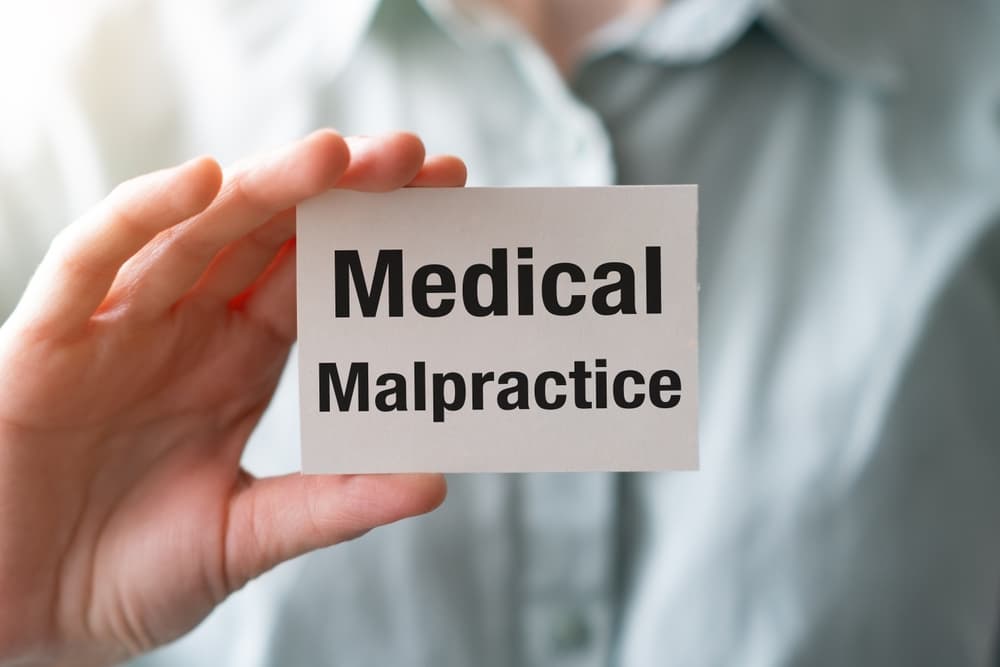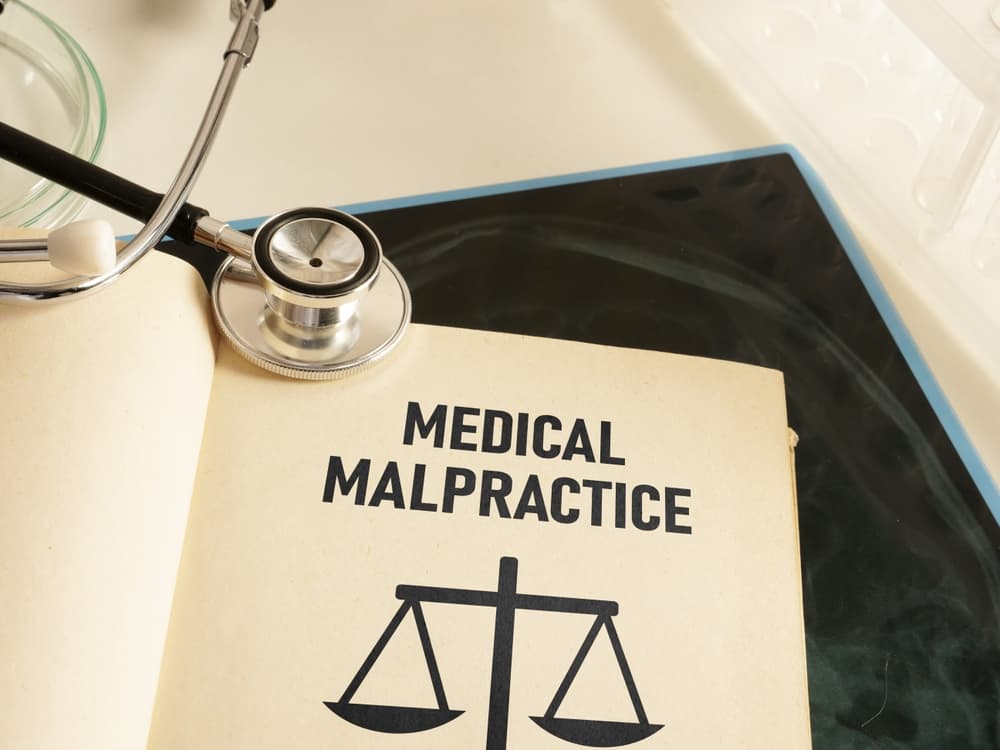When we go to the doctor, we trust them to help us figure out what's wrong if we're feeling sick. Sometimes, people might show up to a doctor with a serious illness like cancer.
It's very important for doctors to find this out as soon as possible because treating cancer early can make a big difference. However, there are times when doctors might not find the cancer right away. This is called a "failure to diagnose." When this happens, it might mean that you don't get the treatment you need quickly enough.
Failure to diagnose can cause serious injuries to patients. This opens up the possibility of a medical malpractice claim with the help of a Tappahannock medical malpractice lawyer.
What is Medical Malpractice?
Medical malpractice happens when doctors don't give proper care, causing harm to patients. However, not every doctor's mistake is considered malpractice. It must involve care that falls below the expected standard that also leads to preventable injuries or complications.
Medical malpractice can happen if a doctor misses signs of cancer during diagnosis. Symptoms like pain or lumps should prompt cancer tests. Tests may include blood work, imaging scans, or biopsies to detect cancer cells.
If a doctor doesn't order these tests or listen to the patient, the cancer can worsen.
Finding cancer early increases treatment success. If a doctor's inaction delays diagnosis and cancer advances, it might be medical malpractice.
Not all late cancer diagnoses are due to medical mistakes. Cancer can be hard to detect early, even when doctors follow procedures. Medical malpractice occurs when a doctor's error harms the patient.
If your cancer wasn't found early due to a doctor's mistake, you might need more treatment because of the late diagnosis. You may feel scared and unsure about the future. Talk to a medical malpractice attorney to understand what happened and if the doctor can be at fault.
How Does Failure to Diagnose Cancer Happen?
There are a few ways that a failure to diagnose cancer can happen:
A Doctor Might Not Take a Patient's Symptoms Seriously
People go to the doctor when they feel sick. They trust the doctor to take their symptoms seriously. But, sometimes, the doctor might not realize how serious the symptoms are. This can be a huge issue, especially if those symptoms can be signs of cancer.
When you talk to the doctor about your symptoms, you want the doctor to think about all the possible causes, both common and serious. If the doctor assumes symptoms are minor without checking, it can delay diagnosing serious illnesses.
For example, if someone has a persistent cough, it might be easy to think it's just a cold or allergies. But if the cough doesn't go away, it can be a sign of lung cancer. Unexplained weight loss can similarly be a symptom of cancer. Doctors may think it's just stress or a diet change.
The reasons why a doctor might not take symptoms seriously can vary. Sometimes, it might be because you appear to be in good health overall or because the symptoms seem common and benign. Sometimes, the doctor and patient don't communicate well. This can happen if the patient doesn't fully explain their symptoms or if the doctor has biases based on age, gender, race, or health history. These biases can affect how the doctor sees and evaluates symptoms.
This underestimation or misinterpretation of symptoms can lead to a lack of necessary tests being ordered. Tests like blood work, imaging, or biopsies are essential tools in diagnosing cancer. They can provide clear evidence of what's happening inside the body that might not be visible from the outside. Without these tests, a cancer diagnosis might be missed or delayed. This can lead to the disease advancing to a later stage that is tougher to treat.
If you feel your symptoms are being ignored, you should seek a second opinion from another doctor. A different perspective can help in getting the right diagnosis and starting the correct treatment promptly.
In medical malpractice, not taking a patient's symptoms seriously and doing the right tests late can be seen as not meeting the expected care level. The expected care level means what a skilled healthcare provider in the same situation would do.
If the care given is below this level and harms you, it may lead to a malpractice case. You should consult with a medical malpractice lawyer to learn more about these scenarios.
The Necessary Tests to Find Out if You Have Cancer Might Not Be Ordered
When a patient shows signs that can suggest cancer, it's important to do the right tests to diagnose accurately. Tests help doctors confirm or rule out cancer and decide on treatment. Sometimes, doctors forget to order these tests. This can cause delays in diagnosing and treating patients. This can greatly affect the patient's outcome.
Diagnosing cancer involves patient history, physical exams, and tests. Blood tests can show cancer markers. Imaging tests detect tumors. Biopsies examine tissue for cancer cells. These tests help determine if cancer is present.
There are several reasons why a doctor might not order these tests. Sometimes, it might be due to an initial assessment that the symptoms are likely caused by a less serious condition. These mistakes in healthcare can occur when the provider lacks knowledge of the patient's history or underestimates symptoms.
Money issues can also be a factor. The provider might want to save money, or the patient might worry about insurance or paying for tests.
The failure to order necessary tests in these cases can have far-reaching consequences. Cancer may not be found early if the right tools are not used. This can make treatment harder and lower the chances of survival.
Delays can also lead to more expensive and complex treatment, more suffering for the patient and family, and worse quality of life for the patient.
It's critical for you to advocate for yourself in the healthcare system. If you feel your concerns aren't addressed, ask for more tests or a specialist referral. Good communication is key to exploring all potential health issues.
In medical malpractice law, not ordering necessary cancer tests on time breaks the care standard. Doctors must follow certain protocols when cancer is a possibility. If skipping these tests delays a diagnosis and hurts you, it can lead to a lawsuit. To prove malpractice, a patient must show that a reasonable doctor would have conducted the tests and avoided the harm.
Mistakes in Reading Test Results Can Miss Signs of Cancer
When doctors order tests for cancer, another important step is interpreting the results. X-rays, blood tests, and biopsies give key information about the body.
Mistakes in reading these results can cause cancer signs to be overlooked. This can result in delays in diagnosis and treatment with serious consequences for patients.
Reading test results is complicated and requires expertise and attention.
Radiologists read imaging tests. Pathologists check tissue samples. These professionals look for signs of cancer. Mistakes among these professionals can happen for several different reasons:
- Human Error: Even the most skilled and experienced professionals can make mistakes. Misinterpretation can occur due to fatigue, distraction, or overlooking details in the images/samples.
- Complexity of Test Results: Some test results can be challenging to interpret, with subtle signs that are easy to miss. For example, small tumors on an X-ray or MRI might be overlooked if they're not clearly visible or if they mimic other less serious conditions.
- Technical Issues: The quality of the images or samples can also affect the accuracy of the interpretation. Low image quality, small sample size, or technical problems can result in misinterpretation.
- Communication Breakdowns: Sometimes, the issue isn't with the interpretation of the tests themselves but with how the results are communicated between specialists and the primary care doctor. Important information can be lost or misunderstood along the way.
If cancer signs are missed because of test result errors, the disease can keep getting worse without being found. This delay can limit treatment choices and make success less likely. Cancer is usually easier to treat and has better success rates in the beginning, so any delay in finding it can be very harmful.
A missed or delayed cancer diagnosis can greatly affect patients. It may result in more aggressive cancer that is difficult to treat. This may call for advanced treatments like surgery, radiation, or chemotherapy. These treatments can cause severe side effects and affect your quality of life.
A late diagnosis can also have emotional and psychological effects. It can lead to increased stress, anxiety, and uncertainty about the future for you and your family.
Mistakes in reading test results in medical cases can lead to legal action. If a skilled professional had read the results correctly and the harm resulted, negligence might be proven. Patients with these issues can seek legal advice from a medical malpractice lawyer to help know their rights.
What Can You Do?
If you or a loved one weren't correctly diagnosed with cancer, you might feel confused and upset. Wondering what to do next is normal. Always know that you have rights.
While we can't change what happened, there are steps you can take:
- Get a second opinion: This can help you understand your diagnosis and treatment options better.
- Keep records: It can be helpful to write down your medical visits, symptoms, and treatments. This way, you can explain your situation to another doctor. It can also help you remember the information later on.
- Learn about your condition: Understanding your illness can help you make informed decisions about your care.
- Seek support: Talking to others who have been through similar experiences can provide comfort and advice.
What Damages Are Available?
When you are hurt because a doctor didn't diagnose your cancer soon enough, you can seek legal relief through something called damages. Damages are a way of making up for the harm you endured. Let's talk about what kind of "damages" might be available.
First, there are what we call "economic damages." These are about the money it costs because of the mistake. If the cancer wasn't found early, the treatment might be more expensive or take longer. Economic damages can help pay for medical bills, both for treatments that have already happened and for any care that will be needed in the future. They can also help if you can't work like you used to and lose money you should have earned.
Then, there are "non-economic damages." These are for the damages that are not about money but are still very real. If you are in more pain or can't enjoy life the way you did before, non-economic damages are supposed to help make up for that. It's a way of recognizing the sadness, worry, and physical pain that can come when a disease like cancer isn't caught early.
Sometimes, there are also "punitive damages." These aren't very common. Punitive damages are not really about making up for harm. Instead, they're a way to say that what happened was very wrong.
Punitive damages serve as a punishment. They are only given out when the mistake was caused by someone being very careless or not caring about the rules on purpose.
Remember that every situation is different. The kinds of damages and how much support you can get depends on many things, like how big the mistake was and what kind of problems it caused. A medical malpractice lawyer who knows a lot about these kinds of cases can help figure out what damages might be available.

Getting compensation through damages can't fix everything, especially when it comes to being sick. But it's a way to make the journey a bit easier by taking care of medical bills or making sure there's support for the pain and challenges that come with a late diagnosis of cancer. It's about trying to make things as right as they can be, given the situation.
Contact a Medical Malpractice Attorney
Receiving a cancer diagnosis becomes even tougher if it's delayed. We expect doctors to do their best, but they can make mistakes.
If you believe that a failure to diagnose cancer has affected you or a loved one, reach out to a medical malpractice lawyer for help. This area of law can be confusing, but you have support and resources to help you.







